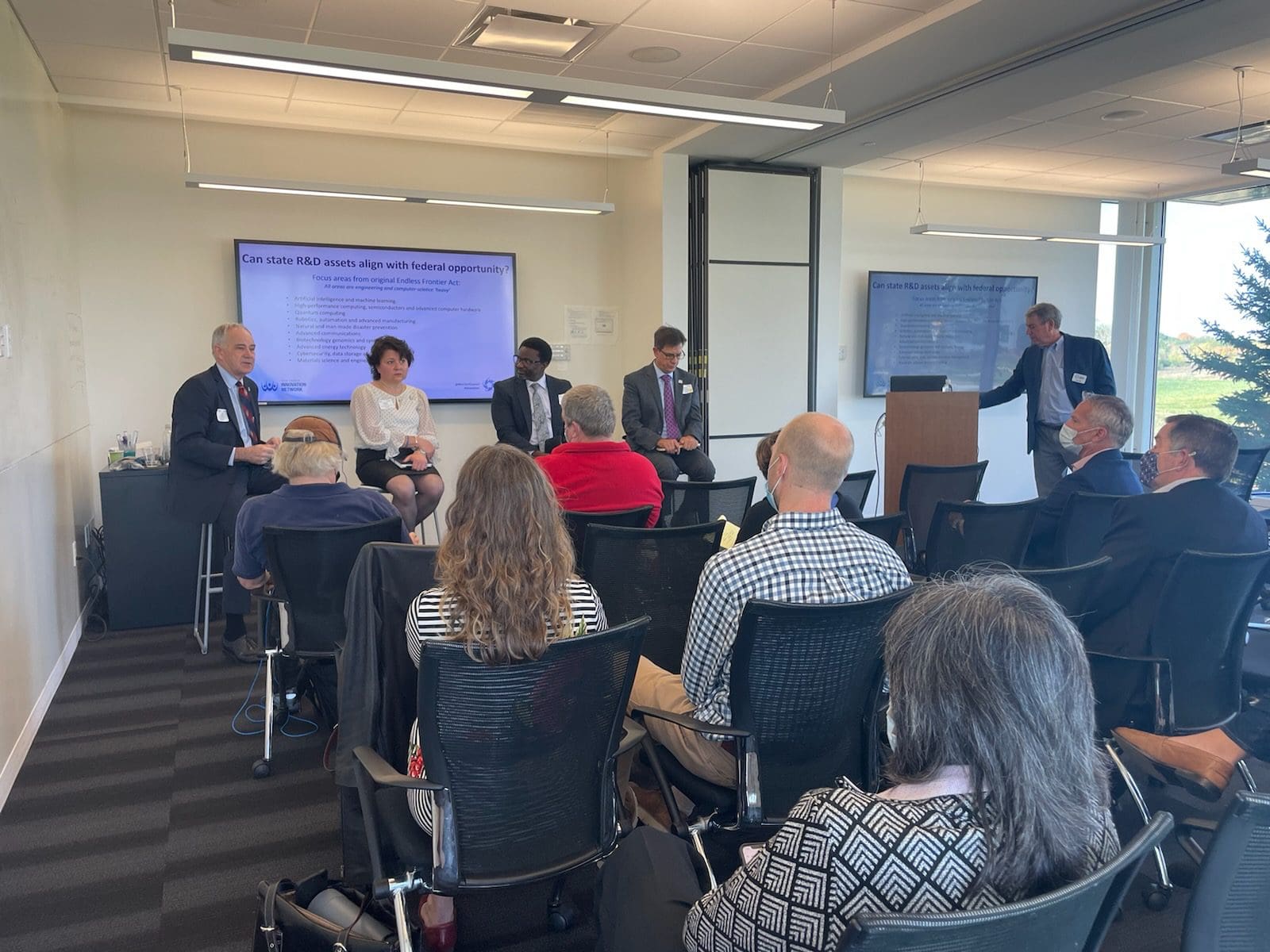 Leaders from four research universities in Wisconsin discussed Tuesday at a Wisconsin Technology Council luncheon how they could collaborate to compete for federal funding that’s expected to become available for emerging U.S. technology hubs.
Leaders from four research universities in Wisconsin discussed Tuesday at a Wisconsin Technology Council luncheon how they could collaborate to compete for federal funding that’s expected to become available for emerging U.S. technology hubs.
The University of Wisconsin-Madison, University of Wisconsin-Milwaukee, Marquette University and the Milwaukee School of Engineering (MSOE) were represented on a panel that centered around how Wisconsin could compete for federal funding, such as money that could be available from the U.S. Innovation and Competition Act that passed in the U.S. Senate in June and is being considered by the House.
The bill would designate and fund a select group of regional tech hubs across the country that are not currently among the nation’s leading tech ecosystems to “diffuse innovation” throughout the U.S. The Senate’s version of the bill states that awarding grants to the regions would be a competitive process. The billion-dollar bill is expected to pass in some form.
Wisconsin Technology Council president Tom Still moderated Tuesday’s conversation. The council’s role in a process of seeking federal tech funding could be one of a “neutral yet interested” convener, Still said.
The university panelists emphasized the importance of collaboration and working with industry partners and politicians from the beginning. There were also discussions of positioning the region’s technology assets around a pressing world challenge, such as the transition to clean energy or strengthening cybersecurity.
“Sometimes we can come together in a more meaningful way when we have a challenge that we need to address,” Marquette’s associate vice president for corporate engagement Carmel Ruffolo said.
Panelists also discussed the state’s technical areas of strength, including advanced manufacturing, artificial intelligence and energy technology.
UWM College of Engineering and Applied Science associate dean for research Andrew Graettinger noted that these types of industries and technologies aren’t isolated and that the region should bring them together and apply them to real industry challenges to create a strong proposal.
“Say we’re focused on advanced manufacturing or advanced energy technology, but we’re spinning in cybersecurity… because a grid that’s not secure is no good,” Graettinger said.
In opening remarks, Wisconsin Alumni Research Foundation CEO Erik Iverson said it would be important to determine the geographic scope of Wisconsin’s tech hub, which he suggested could include Madison, Milwaukee and Green Bay. The region would also need to determine which organizations and institutions would be involved, and select one to take the lead.
“I think we collectively need to have that dialogue to decide what would position us to achieve one of these technology hubs,” Iverson said. “I do believe that it is (Wisconsin’s) to lose.”
UW-Madison College of Engineering dean Ian Robertson and MSOE dean of applied research Sheku Kamara were also panelists in the discussion.
Written by Teddy Nykiel



